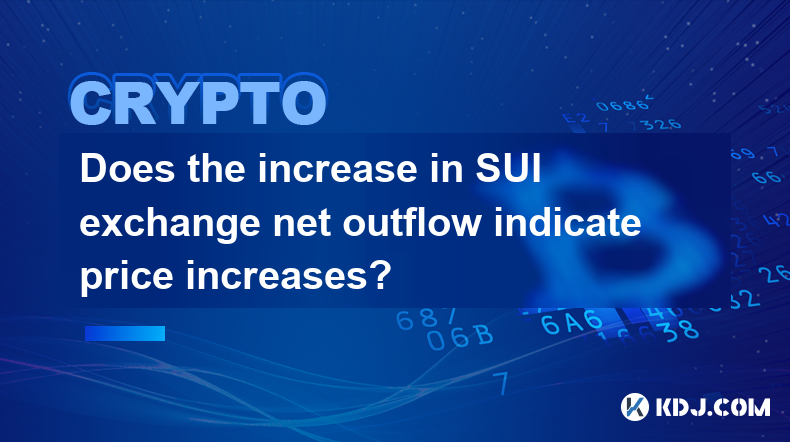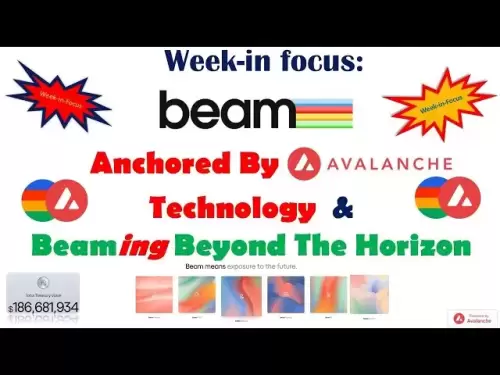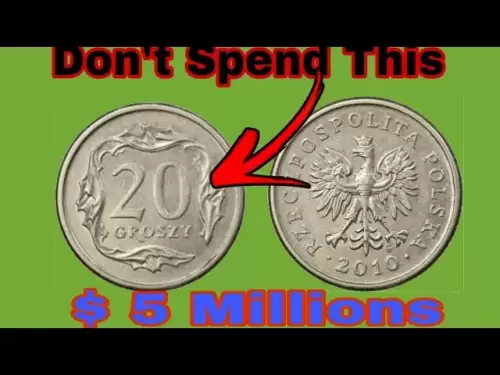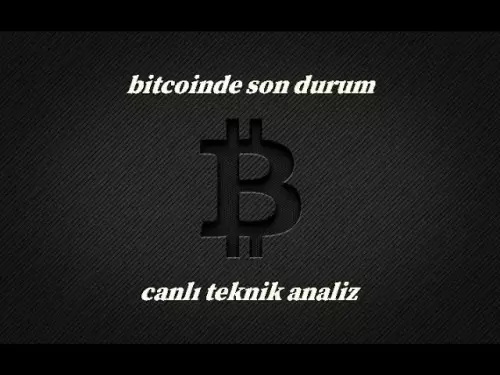-
 Bitcoin
Bitcoin $108,562.4295
0.46% -
 Ethereum
Ethereum $2,533.9553
1.52% -
 Tether USDt
Tether USDt $1.0002
-0.01% -
 XRP
XRP $2.2542
2.23% -
 BNB
BNB $662.4567
1.48% -
 Solana
Solana $151.4114
3.48% -
 USDC
USDC $0.9999
0.00% -
 TRON
TRON $0.2860
0.91% -
 Dogecoin
Dogecoin $0.1685
3.72% -
 Cardano
Cardano $0.5809
1.63% -
 Hyperliquid
Hyperliquid $39.2916
1.85% -
 Sui
Sui $2.8874
0.85% -
 Bitcoin Cash
Bitcoin Cash $496.5801
2.72% -
 Chainlink
Chainlink $13.3582
2.48% -
 UNUS SED LEO
UNUS SED LEO $9.0279
0.07% -
 Avalanche
Avalanche $18.0773
2.30% -
 Stellar
Stellar $0.2426
3.05% -
 Toncoin
Toncoin $2.9086
6.01% -
 Shiba Inu
Shiba Inu $0.0...01170
2.97% -
 Hedera
Hedera $0.1587
3.47% -
 Litecoin
Litecoin $87.4596
1.13% -
 Monero
Monero $317.0425
0.73% -
 Polkadot
Polkadot $3.3778
1.90% -
 Dai
Dai $0.9999
-0.01% -
 Ethena USDe
Ethena USDe $1.0001
-0.01% -
 Bitget Token
Bitget Token $4.4095
0.63% -
 Uniswap
Uniswap $7.3593
6.80% -
 Pepe
Pepe $0.0...09910
3.64% -
 Aave
Aave $274.7388
2.68% -
 Pi
Pi $0.4607
0.48%
Does the increase in SUI exchange net outflow indicate price increases?
An increase in SUI exchange net outflow may signal potential price rises, but consider market sentiment, trading volume, and news for a comprehensive analysis.
Apr 26, 2025 at 09:07 pm

The relationship between the net outflow of an exchange and the price of a cryptocurrency like SUI can be a complex one, often sparking curiosity among investors and traders. The increase in SUI exchange net outflow can indeed be a signal of potential price increases, but it's essential to understand the underlying mechanisms and consider other factors that might influence the price. In this article, we will delve into the specifics of SUI exchange net outflows, how they are measured, and what they might indicate about future price movements.
Understanding Exchange Net Outflows
Exchange net outflow refers to the difference between the amount of a cryptocurrency that is withdrawn from an exchange and the amount that is deposited into it over a given period. When the net outflow is positive, it means more SUI is being withdrawn from exchanges than deposited. This can be interpreted in several ways, one of which is that investors are moving their SUI to private wallets, possibly in anticipation of a price increase.
Why Investors Move SUI Off Exchanges
There are several reasons why investors might choose to move their SUI off exchanges. One key reason is to secure their assets in private wallets, which are generally considered safer than leaving funds on an exchange. Another reason could be to prepare for long-term holding, as moving SUI to a private wallet can be a sign that investors are planning to hold onto their assets for an extended period, which might indicate confidence in future price appreciation.
The Impact of Net Outflows on Price
When a significant amount of SUI is moved off exchanges, it can lead to a decrease in the available supply on the market. If demand remains constant or increases, this reduced supply can drive up the price. However, it's important to note that net outflows alone do not guarantee a price increase. Other market factors, such as overall market sentiment, regulatory news, and macroeconomic conditions, can also play a significant role in determining the price of SUI.
Analyzing Historical Data
To better understand the relationship between SUI exchange net outflows and price increases, it's helpful to look at historical data. By examining past instances where there was a significant net outflow of SUI from exchanges, we can identify patterns and correlations with subsequent price movements. For example, if historical data shows that periods of high net outflows were often followed by price increases, this could strengthen the case for a potential price rise following current net outflows.
Other Factors to Consider
While net outflows can be a useful indicator, they should not be the sole factor considered when predicting price movements. Other important factors include:
- Market Sentiment: The overall mood of the market can greatly influence the price of SUI. Positive sentiment can drive up prices, while negative sentiment can lead to declines.
- Trading Volume: High trading volumes can indicate strong interest in SUI, which might lead to price increases.
- News and Developments: Announcements related to SUI, such as partnerships, technological upgrades, or regulatory changes, can have a significant impact on its price.
How to Monitor SUI Exchange Net Outflows
For those interested in tracking SUI exchange net outflows, there are several tools and resources available. Here's how you can monitor these outflows:
- Use Blockchain Explorers: Websites like Etherscan or specific SUI blockchain explorers can provide detailed transaction data, including inflows and outflows from exchanges.
- Utilize Crypto Analytics Platforms: Platforms like Glassnode or CryptoQuant offer comprehensive data on exchange flows, including net outflows for SUI.
- Follow Market Reports: Many cryptocurrency news outlets and market analysis firms publish regular reports on exchange flows and their potential impact on prices.
Practical Steps to Analyze SUI Net Outflows
If you want to analyze SUI net outflows yourself, here are some practical steps you can follow:
- Gather Data: Use the tools mentioned above to collect data on SUI exchange inflows and outflows over a specific period.
- Calculate Net Outflows: Subtract the total inflows from the total outflows to determine the net outflow for each period.
- Compare with Price Data: Overlay the net outflow data with historical price data for SUI to identify any correlations.
- Consider Other Factors: Take into account other market factors that might have influenced the price during the periods you are analyzing.
Case Studies of SUI Net Outflows and Price Movements
To illustrate the potential impact of net outflows on SUI prices, let's look at a few case studies:
- Case Study 1: In early 2023, there was a significant net outflow of SUI from major exchanges. Over the following month, the price of SUI increased by 15%. This suggests that the net outflow might have contributed to the price rise by reducing the available supply on the market.
- Case Study 2: In mid-2023, another period of high net outflows was observed. However, this time, the price of SUI did not increase significantly. This could be due to other market factors, such as negative sentiment or regulatory news, that offset the potential impact of the net outflows.
The Role of Market Participants
Market participants play a crucial role in the dynamics of SUI exchange net outflows and price movements. Large investors, often referred to as "whales," can significantly influence net outflows by moving large amounts of SUI off exchanges. Their actions can signal to other investors whether to buy or sell, thereby affecting the price.
Conclusion on SUI Net Outflows and Price Increases
While an increase in SUI exchange net outflow can be a positive signal for potential price increases, it is essential to consider this indicator in the context of other market factors. By understanding the reasons behind net outflows, analyzing historical data, and monitoring other relevant indicators, investors can make more informed decisions about the future price movements of SUI.
Frequently Asked Questions
Q1: Can SUI exchange net outflows be manipulated by large investors?
A1: Yes, large investors, or "whales," can influence SUI exchange net outflows by moving significant amounts of SUI off exchanges. Their actions can be seen as a signal by other market participants, potentially affecting the price.
Q2: How quickly can SUI exchange net outflows impact the price?
A2: The impact of SUI exchange net outflows on price can vary. In some cases, the effect might be immediate, while in others, it might take days or weeks for the market to fully react to the change in supply.
Q3: Are there any tools specifically designed to track SUI exchange net outflows in real-time?
A3: Yes, several crypto analytics platforms, such as Glassnode and CryptoQuant, offer real-time data on SUI exchange net outflows. These tools can help investors stay updated on the latest trends and make timely decisions.
Q4: How do SUI exchange net outflows compare to other cryptocurrencies in terms of impact on price?
A4: The impact of exchange net outflows on price can vary between different cryptocurrencies. For SUI, the effect might be more pronounced due to its specific market dynamics and investor base. Comparing SUI to other cryptocurrencies requires analyzing each asset's unique characteristics and market conditions.
Disclaimer:info@kdj.com
The information provided is not trading advice. kdj.com does not assume any responsibility for any investments made based on the information provided in this article. Cryptocurrencies are highly volatile and it is highly recommended that you invest with caution after thorough research!
If you believe that the content used on this website infringes your copyright, please contact us immediately (info@kdj.com) and we will delete it promptly.
- Altcoins in the Spotlight: What's Trending Now?
- 2025-07-07 02:45:12
- Pepe Coin's Plunge: Is the Frog Coin Ready to Bounce Back, or is Little Pepe the New Big Bet?
- 2025-07-07 02:47:22
- Sports Tokens: Market Cap Predictions for July 2025
- 2025-07-07 02:45:12
- DeFi, AI, and Crypto Resilience: Navigating the Future of Finance
- 2025-07-07 02:45:14
- Dogwifhat, Shiba Inu, and the Crypto Scene: What's Hot and What's Not?
- 2025-07-07 02:47:08
- Whales, Fartcoin, and Price Dips: What's the Deal?
- 2025-07-07 02:47:09
Related knowledge

How to customize USDT TRC20 mining fees? Flexible adjustment tutorial
Jun 13,2025 at 01:42am
Understanding USDT TRC20 Mining FeesMining fees on the TRON (TRC20) network are essential for processing transactions. Unlike Bitcoin or Ethereum, where miners directly validate transactions, TRON uses a delegated proof-of-stake (DPoS) mechanism. However, users still need to pay bandwidth and energy fees, which are collectively referred to as 'mining fe...

USDT TRC20 transaction is stuck? Solution summary
Jun 14,2025 at 11:15pm
Understanding USDT TRC20 TransactionsWhen users mention that a USDT TRC20 transaction is stuck, they typically refer to a situation where the transfer of Tether (USDT) on the TRON blockchain has not been confirmed for an extended period. This issue may arise due to various reasons such as network congestion, insufficient transaction fees, or wallet-rela...

How to cancel USDT TRC20 unconfirmed transactions? Operation guide
Jun 13,2025 at 11:01pm
Understanding USDT TRC20 Unconfirmed TransactionsWhen dealing with USDT TRC20 transactions, it’s crucial to understand what an unconfirmed transaction means. An unconfirmed transaction is one that has been broadcasted to the blockchain network but hasn’t yet been included in a block. This typically occurs due to low transaction fees or network congestio...

How to check USDT TRC20 balance? Introduction to multiple query methods
Jun 21,2025 at 02:42am
Understanding USDT TRC20 and Its ImportanceUSDT (Tether) is one of the most widely used stablecoins in the cryptocurrency market. It exists on multiple blockchain networks, including TRC20, which operates on the Tron (TRX) network. Checking your USDT TRC20 balance accurately is crucial for users who hold or transact with this asset. Whether you're sendi...

What to do if USDT TRC20 transfers are congested? Speed up trading skills
Jun 13,2025 at 09:56am
Understanding USDT TRC20 Transfer CongestionWhen transferring USDT TRC20, users may occasionally experience delays or congestion. This typically occurs due to network overload on the TRON blockchain, which hosts the TRC20 version of Tether. Unlike the ERC20 variant (which runs on Ethereum), TRC20 transactions are generally faster and cheaper, but during...

The relationship between USDT TRC20 and TRON chain: technical background analysis
Jun 12,2025 at 01:28pm
What is USDT TRC20?USDT TRC20 refers to the Tether (USDT) token issued on the TRON blockchain using the TRC-20 standard. Unlike the more commonly known ERC-20 version of USDT (which runs on Ethereum), the TRC-20 variant leverages the TRON network's infrastructure for faster and cheaper transactions. The emergence of this version came as part of Tether’s...

How to customize USDT TRC20 mining fees? Flexible adjustment tutorial
Jun 13,2025 at 01:42am
Understanding USDT TRC20 Mining FeesMining fees on the TRON (TRC20) network are essential for processing transactions. Unlike Bitcoin or Ethereum, where miners directly validate transactions, TRON uses a delegated proof-of-stake (DPoS) mechanism. However, users still need to pay bandwidth and energy fees, which are collectively referred to as 'mining fe...

USDT TRC20 transaction is stuck? Solution summary
Jun 14,2025 at 11:15pm
Understanding USDT TRC20 TransactionsWhen users mention that a USDT TRC20 transaction is stuck, they typically refer to a situation where the transfer of Tether (USDT) on the TRON blockchain has not been confirmed for an extended period. This issue may arise due to various reasons such as network congestion, insufficient transaction fees, or wallet-rela...

How to cancel USDT TRC20 unconfirmed transactions? Operation guide
Jun 13,2025 at 11:01pm
Understanding USDT TRC20 Unconfirmed TransactionsWhen dealing with USDT TRC20 transactions, it’s crucial to understand what an unconfirmed transaction means. An unconfirmed transaction is one that has been broadcasted to the blockchain network but hasn’t yet been included in a block. This typically occurs due to low transaction fees or network congestio...

How to check USDT TRC20 balance? Introduction to multiple query methods
Jun 21,2025 at 02:42am
Understanding USDT TRC20 and Its ImportanceUSDT (Tether) is one of the most widely used stablecoins in the cryptocurrency market. It exists on multiple blockchain networks, including TRC20, which operates on the Tron (TRX) network. Checking your USDT TRC20 balance accurately is crucial for users who hold or transact with this asset. Whether you're sendi...

What to do if USDT TRC20 transfers are congested? Speed up trading skills
Jun 13,2025 at 09:56am
Understanding USDT TRC20 Transfer CongestionWhen transferring USDT TRC20, users may occasionally experience delays or congestion. This typically occurs due to network overload on the TRON blockchain, which hosts the TRC20 version of Tether. Unlike the ERC20 variant (which runs on Ethereum), TRC20 transactions are generally faster and cheaper, but during...

The relationship between USDT TRC20 and TRON chain: technical background analysis
Jun 12,2025 at 01:28pm
What is USDT TRC20?USDT TRC20 refers to the Tether (USDT) token issued on the TRON blockchain using the TRC-20 standard. Unlike the more commonly known ERC-20 version of USDT (which runs on Ethereum), the TRC-20 variant leverages the TRON network's infrastructure for faster and cheaper transactions. The emergence of this version came as part of Tether’s...
See all articles

























































































